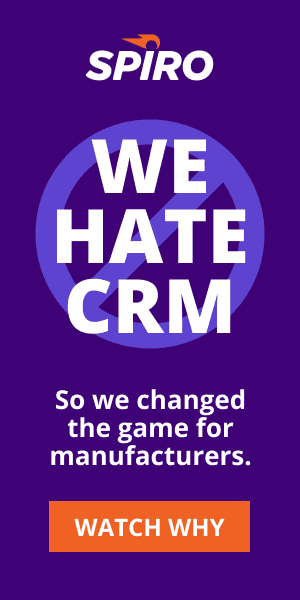4 Sales Lessons From Apple
Sales-wise, Apple continues to throttle the competition: it’s a master builder of the category king. Want to bring a new smartphone, tablet or laptop to market? It will be judged against the latest iPhone. Apple then markets the debut of every new iPhone or other device to within an inch of its life. What’s left? Oh yes, revenue: Apple is the most profitable company in the history of profitability.
The Apple Store is yet another sales juggernaut for the company, and at least some of that success comes down to its Genius Bar, which is Apple’s fancy name for its tech-support desk, where product owners can troubleshoot their products with an “Apple Genius,” a.k.a. computer repair person.
What makes the Genius Bar tick, and what lessons does it offer to other businesses who want to not just better support their customers, but move more products? To answer that question, take a look at the latest version of the Genius Training Student Workbook from Apple, which Gizmodo recently got its hands on. While the manual doesn’t contradict any potentially earth-shattering knowledge, it does offer four takeaways that can help make you a better sales person:
1) Customer Empathy Sells
According to Gizmodo, Apple’s training materials promote a form of psychological sales jujitsu:
Sales, it turns out, take a backseat to good vibes–almost the entire volume is dedicated to empathizing, consoling, cheering up, and correcting various Genius Bar confrontations. The assumption, it’d seem, is that a happy customer is a customer who will buy things.
Takeaway: Don’t discount the power of a satisfied customer and don’t be a sales robot. Apple has some of the highest customer satisfaction scores in the market. While customer satisfaction might not be sexy, it sells, and costs far less than trying to attract new customers.
2) Don’t Waste Customers’ Time
Indeed, just look at the Genius Bar reservation service, which allows customers to book a time to speak with an Apple expert about any issues they’re having with an Apple product. When it comes to sales, most businesses–including cell phone carriers and cable providers–send the wrong signals, telling customers that when you have to wait in a queue, the problem isn’t the wait; it’s you. Consider how many businesses badger you in a phone queue to hang up and use the self-service tools on its website.
Apple, meanwhile, allows you to schedule a service appointment at its store, when it’s convenient for you, which means the problem can often be resolved on the spot. No doubt this psychological “we’re here to serve you” also entices people to buy more. Keep that in mind while you’re confirming your upcoming sales appointments.
3) Memo To Salespeople: Get Selling
What else accounts for Apple’s retail sales magic? Cue Gizmodo: “Maybe it’s because the products sell themselves. Maybe it’s the zealot fan base. Or maybe the blue-clad [Genius] agents really are inside our heads when we walk away from the Bar.”
Of course, sales are the Genius Bar employees’ ultimate remit. Despite heavy use of such words as gracefully, empathetically, persuasively, and respectfully, the Genius Training Student Workbook continually hammers home that “Everyone in the Apple Store is in the business of selling.”
4) Make Selling Easier
It’s essential to note that Apple salespeople aren’t going in alone. Furthermore, the Apple Store isn’t succeeding just based on empathy, product design, store design, or customer service, but a combination of all of these factors. Viewed another way, these factors help salespeople be more effective — not productive. The same goes for any technology that you, as a salesperson, is using: don’t fall for the myth of CRM sales productivity (get a proactive relationship management platform instead), and don’t be taken in by relationship apps.
Never underestimate the power of a highly motivated–and properly trained–salesperson to close more deals.

